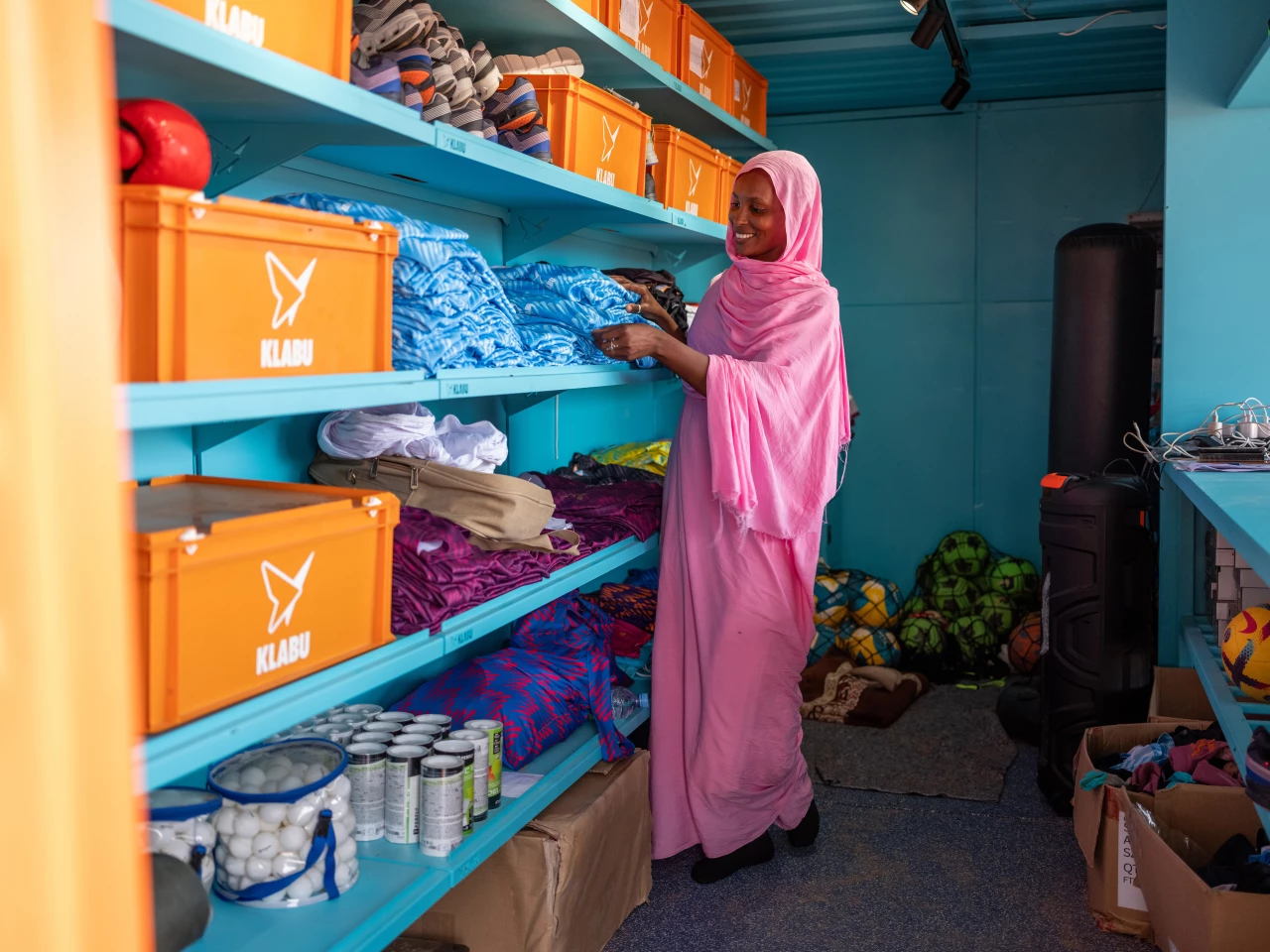We typically associate MVRDV with high-profile projects like the Valley and Depot Boijmans Van Beuningen, but its Klabu sees the firm experimenting with shipping container-based architecture and producing an easily transportable and solar-powered sports club for refugees.
The Klabu (or club in Swahili) was created in collaboration with a social enterprise of the same name from Amsterdam, the Netherlands, that supports refugees in rebuilding their lives through sport.
It's made from a standard shipping container with a length of 20 ft (6 m) and has an interior floorspace of 14 sq m (150 sq ft). The metal box has been painted bright orange and has been heavily modified. The sides and the front-facing facade are operable to ensure natural ventilation and a canopy has been installed for shading.
Alongside various sports gear, it is also used for the wider refugee community. It has solar panels on its rooftop to provide renewable power and includes multiple phone/smart device charging points and even a wireless internet system. The other benefit of it being a container is that it can be easily shipped to those who need it worldwide.

"By using a shipping container as the base, Klabu can deliver both the physical clubhouse structure and the necessary sports equipment in one go, forming a 'flat-packed' sports clubhouse," says MVRDV.
"The Klabu clubhouse design is currently in its third iteration, with the latest version soon to be installed at the Azraq refugee camp in Jordan, which is home to approximately 41,000 Syrian refugees. This follows clubhouses designed by MVRDV operating in the Waraotuma a Tuaranoko shelter in Boa Vista, Brazil, supporting indigenous Venezuelans who had to flee their country, and the M'bera refugee camp in Mauritania, which provides safety for 100,000 Malian refugees."
Shipping containers continue to inspire architects around the world. Other notable examples of their use in architecture include a sauna, an art gallery, a tiny house, and even a soccer stadium.
Source: MVRDV









